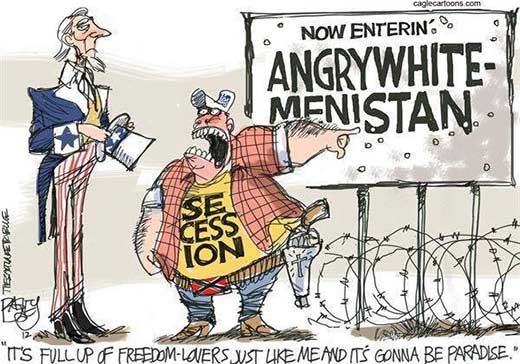US Sanctions on Russia Kill 2 Birds with 1 Stone
The U.S. is killing two birds with one stone through these sanctions. By targeting Russia’s energy companies, military, banks and important businesses, Russia’s comprehensive strength is weakened. The move also hurts European Union energy businesses, meaning that there is an open road ahead for U.S. energy imports into Europe. The intent of the U.S. strategy here is very clear.
EU businesses are suffering under the U.S.-imposed sanctions. Five big players in the European energy market for the Nord Stream 2 project* will bear the brunt of these sanctions, including Germany’s Eon, Holland’s Shell Oil, France’s Engie, Italy’s Eni Group and Austria’s Oil and Gas Group.
Russia announced the building of the Nord Stream 2 in 2015. The pipeline will run between Russia and Germany along the bottom of the Baltic Sea, parallel to the first Nord Stream pipeline. Once built, it will be able to transport 55 billion cubic meters (approximately 14.5 trillion gallons) of natural gas. The project is estimated to cost 9.5 billion euros (approximately $11.1 billion), and five European energy companies have already promised to supply almost half of that figure, 4.5 billion euros (approximately $382.5 billion), in a long-term loan. U.S. sanctions will disrupt the Nord Stream 2 project and U.S. gas will replace Russian gas to meet the European market demand.
The unilateral action of the U.S. is damaging European energy security and creating great resentment in Europe. Germany, Austria, France, etc. have issued protests, saying that the action introduced a “new and very negative quality in European-American relations” which is “unacceptable.” European Commission President Jean-Claude Juncker issued a statement demanding that the U.S. give “public or written reassurance,” that European interests will not be implicated in these sanctions. If the U.S. chooses to ignore the EU’s interests, the EU will take legal action to prevent new sanctions from obtaining approval or enforcement within the EU and will raise an appeal with the World Trade Organization and others.
Responding to Europe’s concerns, the U.S. added that Trump would coordinate with Europe when implementing the sanctions to the bill. However, it is certain that no matter how Trump coordinates with European countries, there is something that cannot change – the fact that both sides will need to go through careful deliberations and reach a solid consensus.
These U.S. sanctions on Russia have hurt trans-Atlantic understanding. Taking Europe’s interests into account, the U.S. has, in the past, excluded Russian natural gas and crude oil exports from sanctions. But in making gains from science and technology, the U.S. is already the world’s largest energy producer and urgently needs to export its energy. Considering the new “America first” policy, it can only be expected that the aforementioned common understanding will be abandoned.
Besides, Nord Stream 2 is a controversial project in Europe. Poland, the Baltic States, Ukraine and others have intensely opposed the project, believing that it will cause Ukraine, Slovakia and Poland to lose several billion euros in income, as well as weaken the price and position of European energy in relation to Russian energy. There are disagreements on this within Europe; using Poland and others to contain the EU’s countermeasures gives the U.S. the opportunity to increase its exports of energy to the EU. The first shipment of U.S. natural gas arrived in Poland a few days ago, beginning a new phase of cooperation between the U.S. and Poland, and possibly even the whole of Eastern and Central Europe.
What is even more significant, though, is the shared objective of the Republican and Democratic Parties, which has been strangling the Nord Stream 2 project. Last August, the former U.S. vice president explicitly declared U.S. opposition to Nord Stream 2, believing that it will make Europe more dependent on Russian energy. This suggests that the U.S. has wanted to break the Russian dominance over the European energy market, allowing the U.S. to export its own energy to Europe.
It has been reported that besides Nord Stream 2, U.S. sanctions on Russia are focused on another eight or more Russian-EU projects. Because of this, it is not difficult to see that, going through the U.S.’ toolbox of sanctions, this strategy is not just a tool to create a foreign affairs battle but also a weapon to create U.S. jobs and increase exports.
Because the new U.S. bill on Russian sanctions received overwhelming support from both the House of Representatives and the Senate, there is no suspense regarding whether or not the bill will become law. Now that both sides have made their positions clear, the battle in favor of and against sanctions has commenced. The results will be hard to predict but will certainly increase the current discord between the U.S. and Europe.
The author is a Huanqiu web commentator and former ambassador.
*Editor's note: Nord Stream 2 is an expansion to an offshore, natural gas pipeline, which runs from Vyborg, Russia, to Greifswald, Germany.

